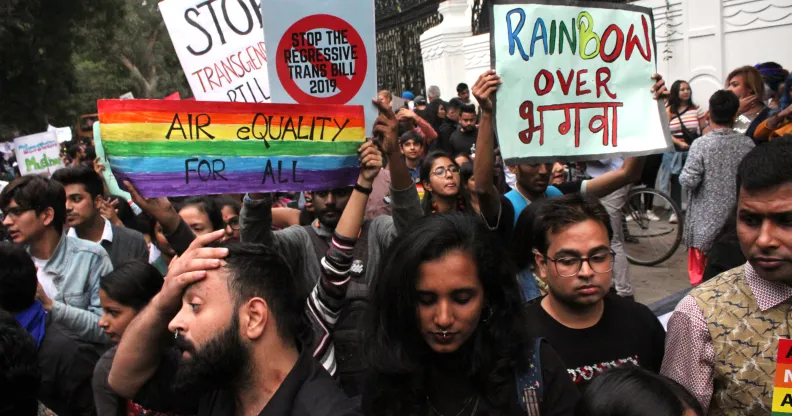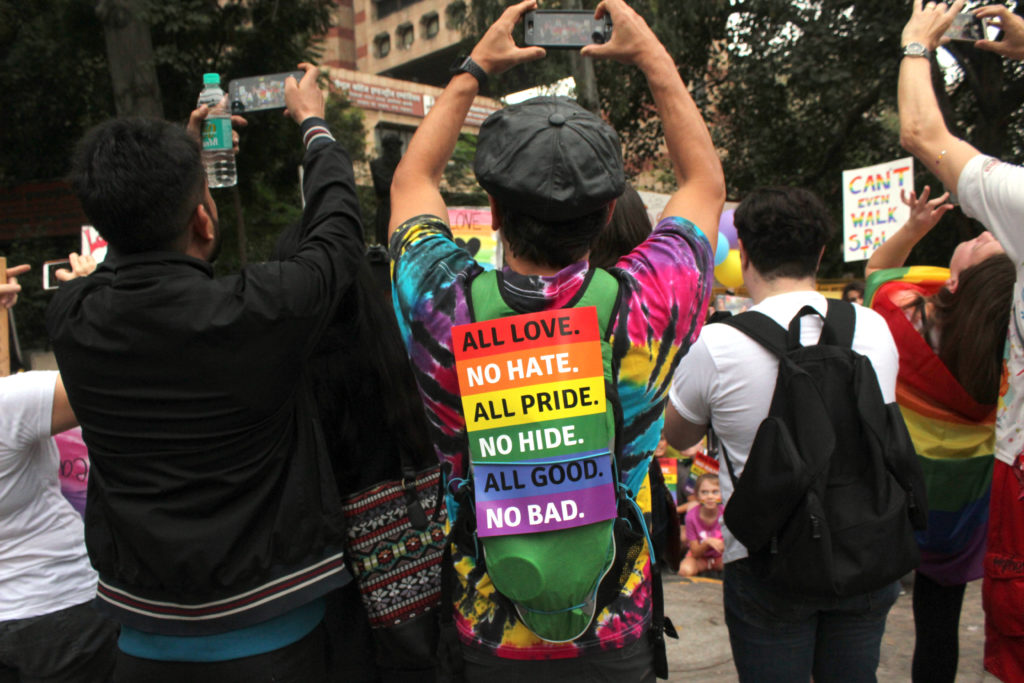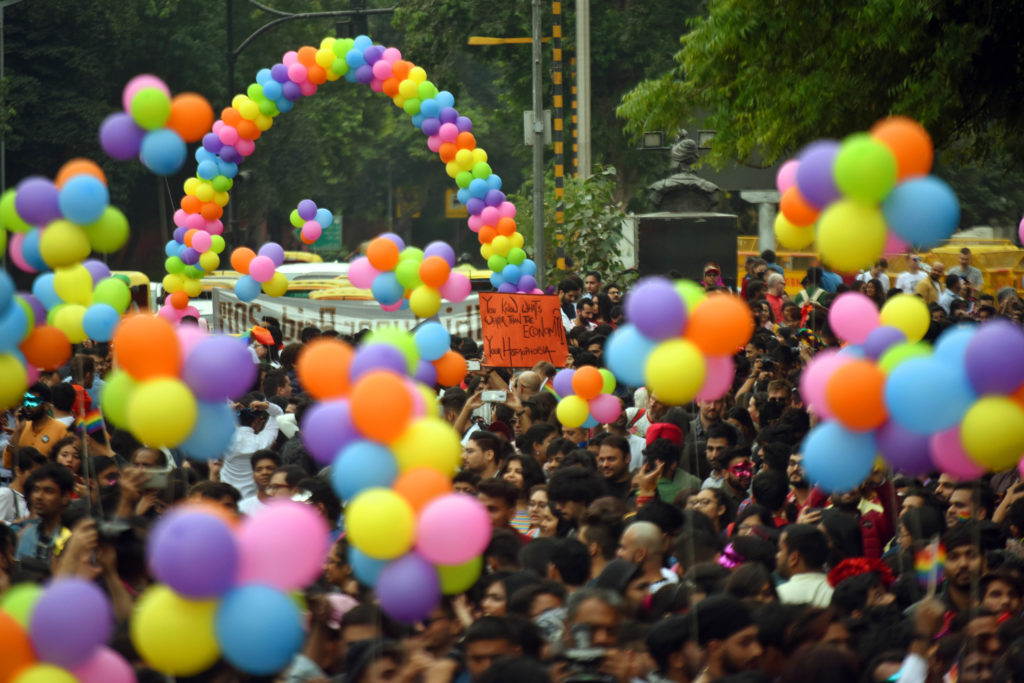Thousands of gender-diverse activists storm the streets of India to protest against controversial ‘trans rights bill’

Member and supporters of the LGBT+ community take part in annual pride parade in New Delhi. (Mayank Makhija/NurPhoto via Getty Images)
Trans and gender-diverse activists mobilised a fast and fierce campaign against a controversial ‘trans rights bill’ in the capital city of India last weekend.
Thousands spilt onto the streets of New Delhi Queer Pride on Sunday, many holding up high damning placards against parliament’s proposed bill that would prove problematic to the community.
The upper house of parliament in India – the Rajya Sabha – tabled the bill last week, coming after the lower house Lok Sabha cleared the bill in August. No questions asked.
With the bill speeding towards approval, activists have trumpeted their concerns against a law that does more to infringe than protect trans rights.
What happened?
The Transgender Persons (Protections of Rights) 2019 promises to “benefit a large number of transgender persons”, according to a cabinet statement.
It aims to “mitigate the stigma, discrimination, and abuse against the marginalised section and bring them into the mainstream of society”.
However, trans rights groups have hounded the bill since it was first drafted late last year.

Trans groups have been nervous about the stability of their rights since Bharatiya Janata Party leader Narendra Modi was re-elected as Chowkidar. (Mayank Makhija/NurPhoto via Getty Images)
Carrying rainbow flags, balloons and dancing to the beat of drums, more than 1,000 Pride-goers demanded self-identification rather than what the bill proposes, which activists have lampooned as laborious and lengthy.
The bill, if approved by parliament, would see trans folk tangled in red tape. Having to register as trans, then provide proof of surgery to the authorities.
Also, the bill is unclear whether gender-affirmation surgery would be subsidised by the state or not.
Trans group’s concerns comes after Bharatiya Janata Party leader Narendra Modi was re-elected as prime minister this year.
His party’s manifesto was barren when it came to LGBT+ rights, meaning that trans rights might emerge as a blind-spot when it comes to policy during the Modi administration.
Why are trans people in India against the bill?
India recognised trans as a third gender in a landmark Supreme Court ruling in 2014. But the bill, in the pipeline since 2015, is a far cry from the fundamentals of the ruling.
A statement from march organisers said the bill “directly discriminates against the community and strips them of dignity”.
According to the bill, a trans person must apply to the district magistrate for a certificate of identity indicating they are third gender.
They will also be required to seek approval before a “screening committee” before legally changing their gender.

Trans activists and allies march down the streets of New Delhi. (Amal KS/Hindustan Times via Getty Images)
The legislation also metes different punishments for crimes depending on whether the victim is trans or cis-gendered.
A penalty of six months to two years behind bars for the “sexual abuse” of a trans woman is minuscule in comparison to life in prison for the rape of a cis-gendered woman.
Moreover, the bill enshrines little to no protections for trans folk in public spaces or the workplace.
Marchers urged upper house lawmakers to slap down the bill.

